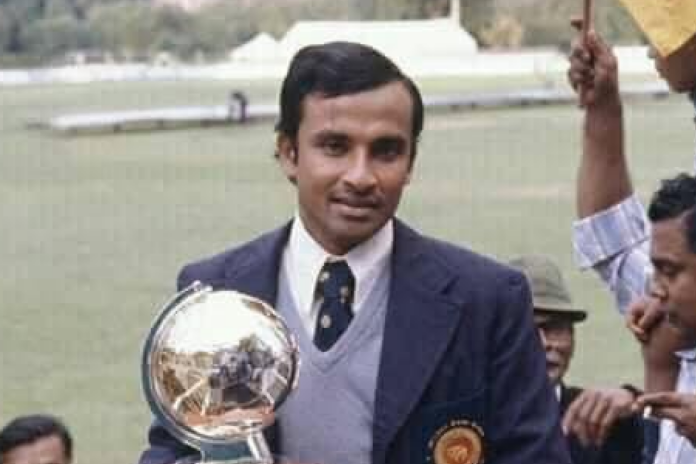One of cricket’s greatest characters was Abdul Hafeez Kardar, Pakistan’s first Test captain. Kardar had debuted for India as a Test cricketer but at partition chose to migrate to newly formed Pakistan. He went onto become the President of Pakistan Cricket Board after retirement and had championed Sri Lanka’s cause for Test status on numerous occasions with firm backing by India. But his proposal had been vetoed time and again by either Australia or England, the founding members of the ICC.
By then, Sri Lanka had beaten both Pakistan and India in unofficial Test matches. The announcement of the inaugural ICC Trophy in 1979 in England was going to be a qualifying process for the World Cup that was to follow soon afterwards.
For Sri Lanka this was not only an opportunity for qualifying for the World Cup, having already played in the previous edition of the tournament in 1975, where they had come off flying colours. It was also an occasion for them to showcase to the world that they belonged to the elite league of Test match cricket.
Anura Tennakoon’s side was handicapped even before they had flown off to London. The Sri Lankan government had decided to boycott their game against Israel on political grounds. So, Sri Lanka were going to concede crucial points – four of them.
Only the teams that topped the group were qualifying for the semis. Although Sri Lanka cruised past USA and Netherlands, their game against Wales was a washout. Wales, USA and Sri Lanka were tied on ten points each, but Tennakoon’s side qualified for the semis with a better Net Run Rate.
In the semis, Sri Lanka cruised past Denmark, thrashing them by 208 runs. One schoolboy Sudath Pasqual from Royal picked up three wickets. Pasqual, who later wrote newspaper columns and headed SLC’s umpiring unit, wasn’t the only schoolboy in the squad. There was Ranjan Madugalle also from Royal and Roger Wijesuriya from St. Sebastian’s.
Canada had won the other semi-final and reached the finals. Both finalists were going through for the World Cup and Sri Lanka won the inaugural ICC Trophy by beating Canada by 60 runs. The final was played at Worcester and captain Tennakoon holding the ICC Trophy with the famous Worcester Cathedral in the backdrop is one of the iconic images of the sport.
Tennakoon didn’t feature in the final due to injury and Bandula Warnapura skippered the side. Duleep Mendis and Sunil Jayasinghe had powered Sri Lanka to a total of 324 for eight and the bowlers did the rest restricting Canada to 264 for five.
Warnapura had a quiet series with the bat with a top score of 36, but his bowling in English conditions proved to be more than handy as he finished as the top wicket taker for Sri Lanka.
Mendis finished the tournament as the highest run scorer with 222 runs and was closely followed by Roy Dias, who had accumulated 214 runs. Canadian John Vaughan was third with 211 runs although he had played two more games than the two Sri Lankans.
Sri Lanka did not stop at winning the ICC Trophy. They put up a splendid show in the World Cup that followed and created the tournament’s biggest upset when they shocked a star-studded Indian side.
Thus, Sri Lanka became the first associate member of the ICC to beat a full member.
This was just what the doctor had ordered for Abdul Hafeez Kardar. At the next ICC meeting, he was quite vocal in further pushing Sri Lanka’s case for Test status. There was resistance again from England and Australia. But it was all too clear they were fighting a losing battle. Soon, Sri Lanka would go onto be granted full status.
Yet, when Gamini Dissanayake as the President of Board of Control for Cricket, made his bid in 1981, only Australia supported Sri Lanka’s case. England simply didn’t use veto power.
The exhibits of the Sri Lankan team in the inaugural ICC event went a long way in the team being admitted as a full member of the ICC.
The Sri Lankan cricket team has achieved many highs over the years and winning a World Cup just 15 years after being granted Test status and becoming the first Asian nation to win a Test series in South Africa were feathers in their cap.
Having said that, it’s a pity that 44 years after winning the inaugural ICC Trophy, Sri Lanka is finding themselves playing in the event again to qualify for the showpiece event of the sport – ICC World Cup. Better planning could have avoided that humiliation. More importantly, lessons have been learnt and we must ensure that there is no repeat of this in the future. That Sri Lanka have automatically qualified for the next T-20 World Cup is some consolation. But we have got a long way to go.














